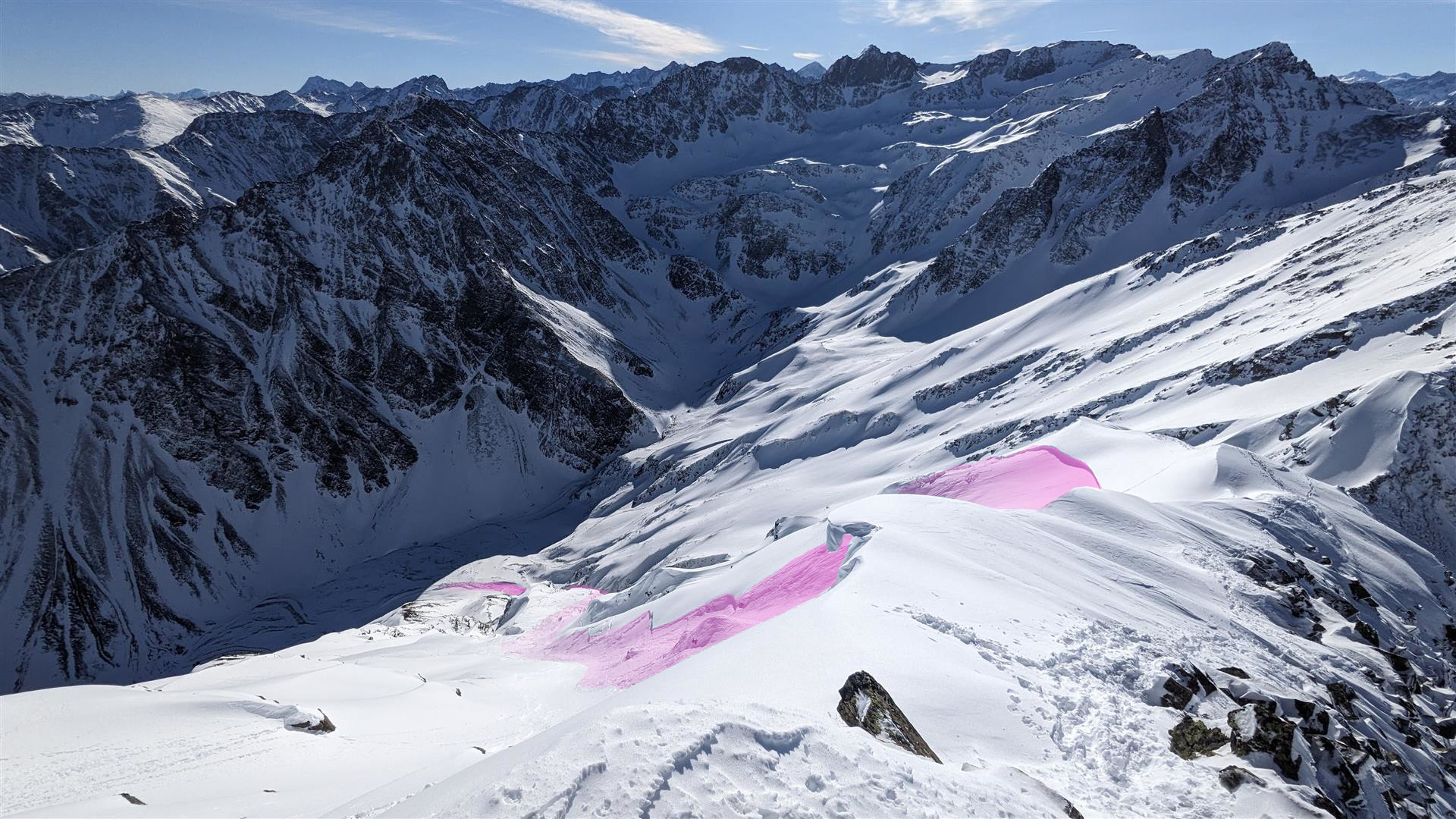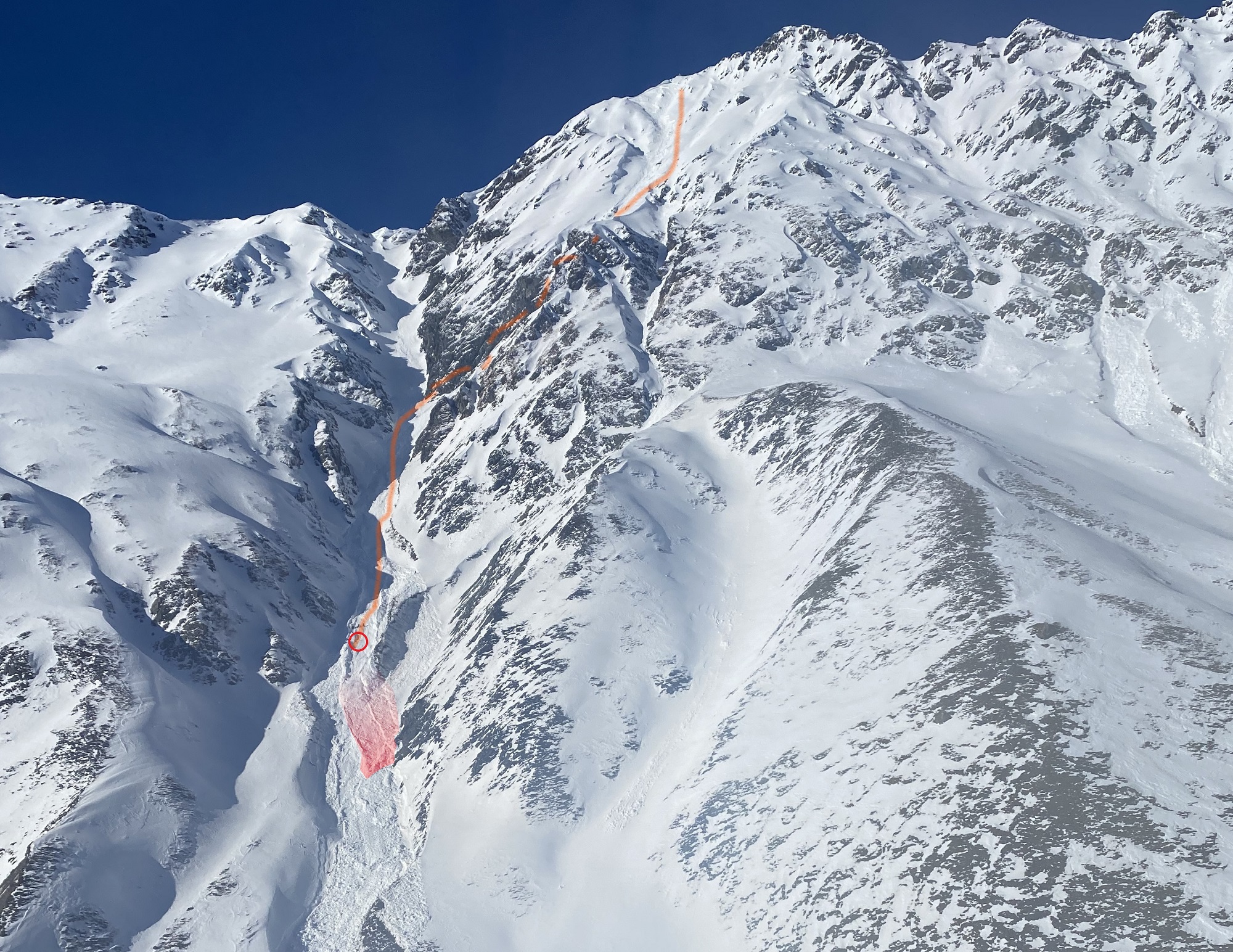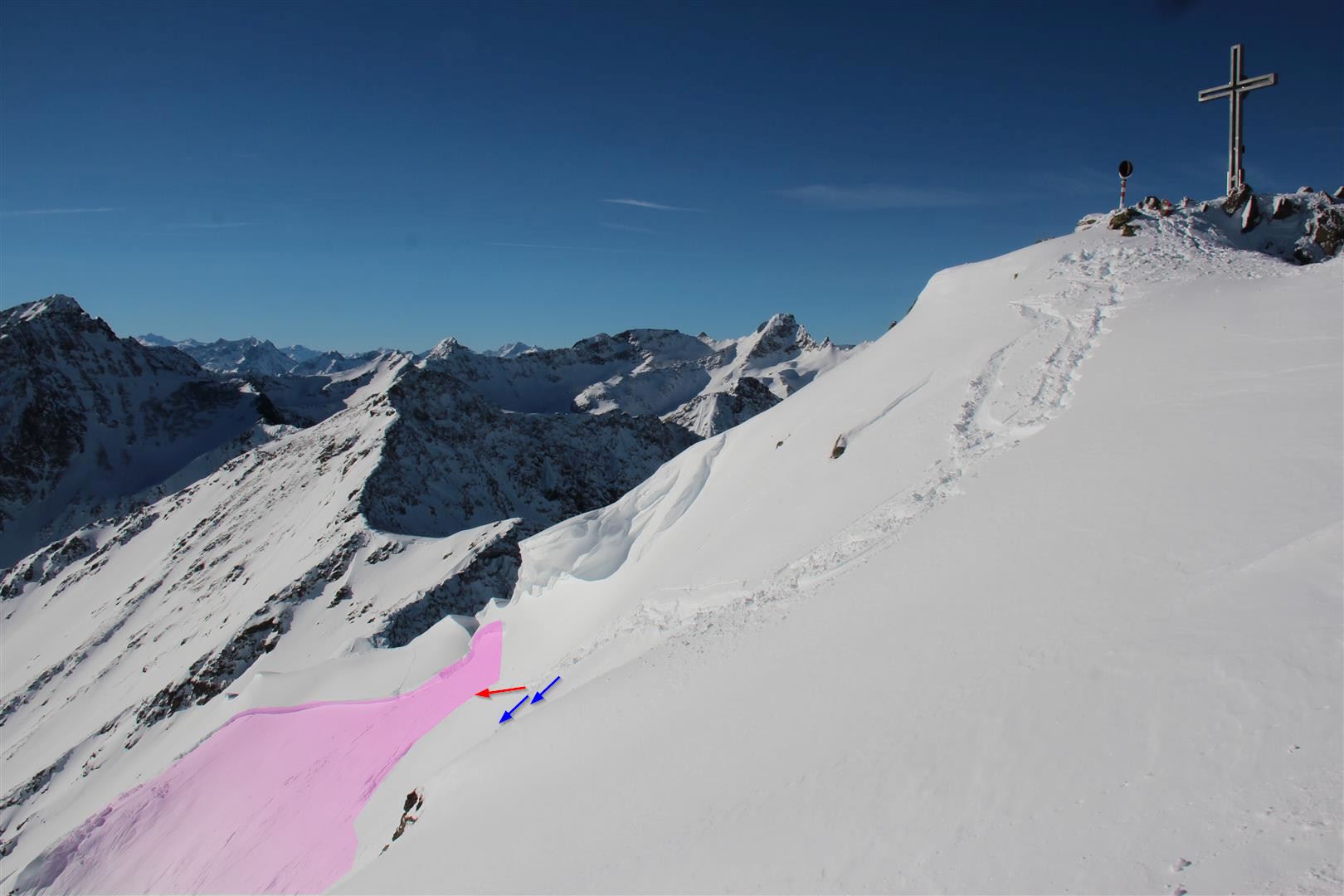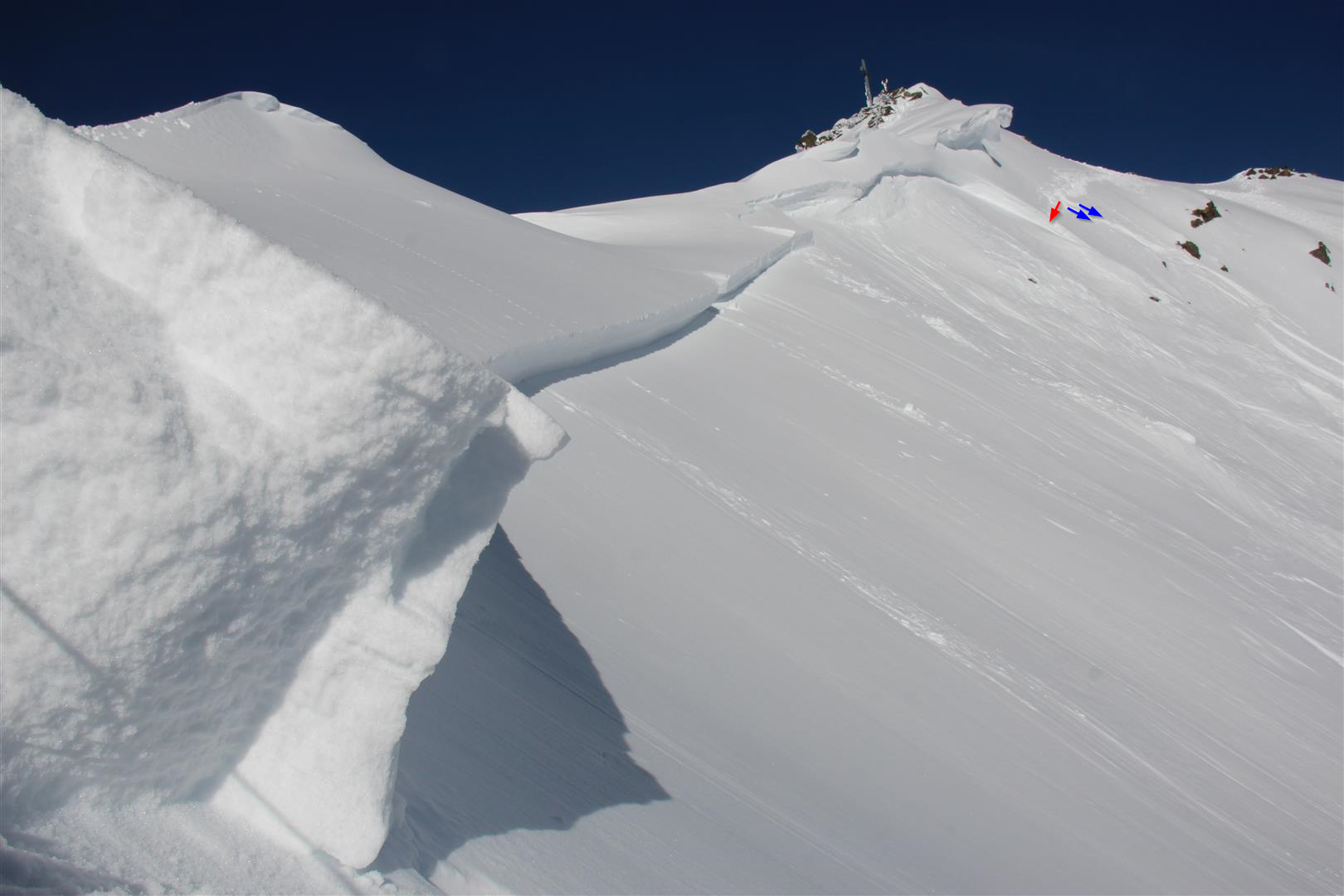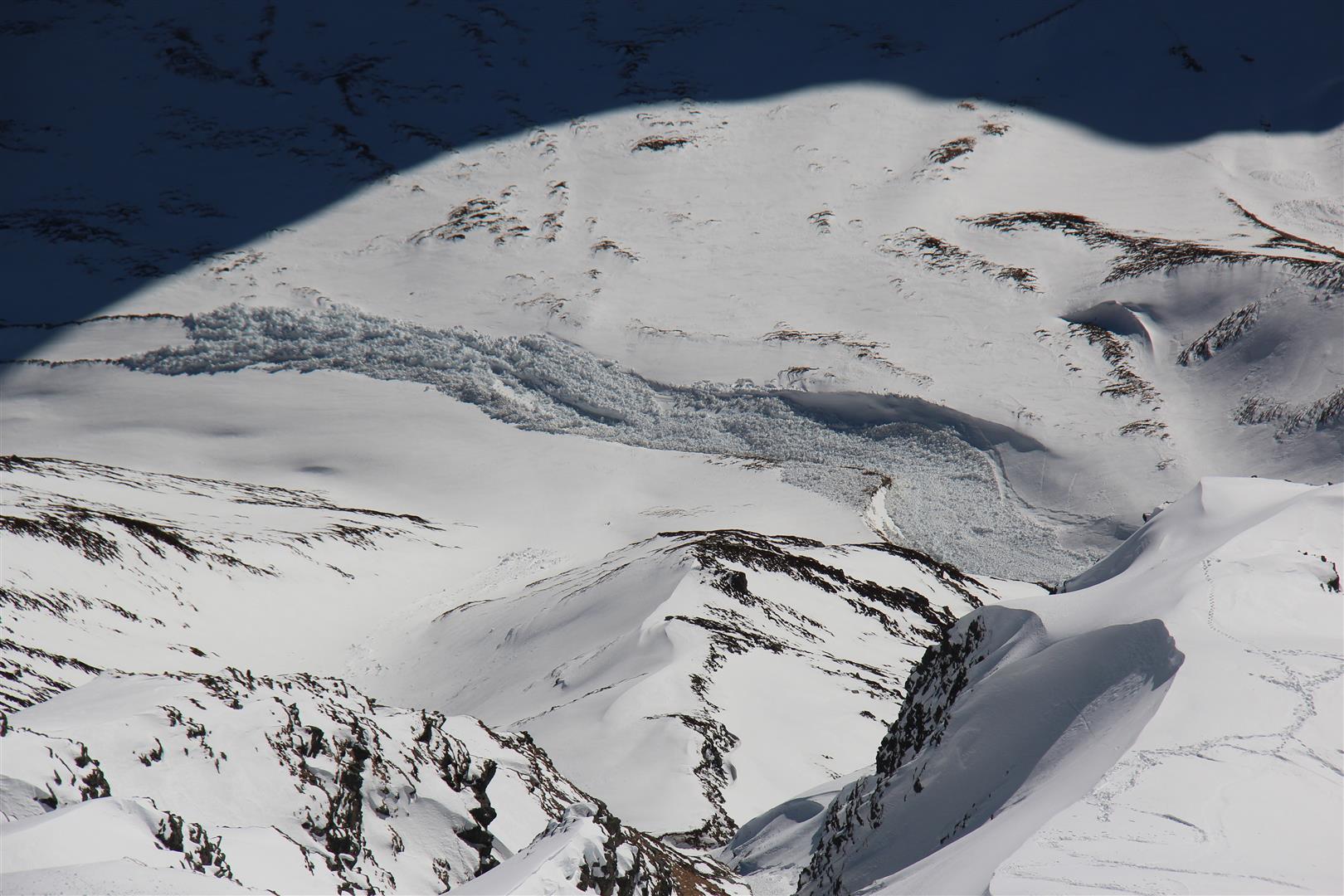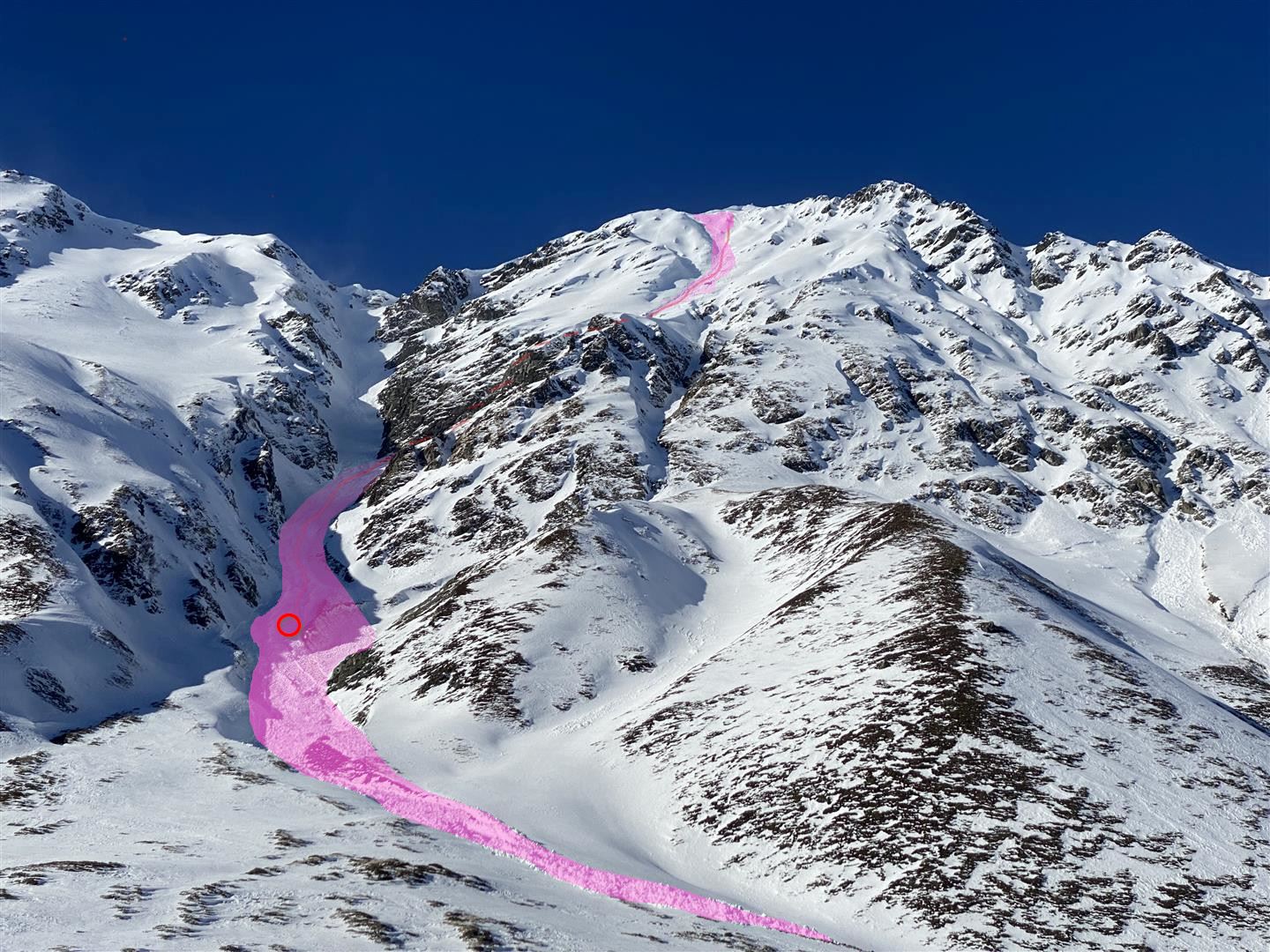A fateful avalanche incident on the Gaiskogel in the Kühtai-Gegenkamm region caused a fatality on 27.01.2024. The cause was a near-surface persistent weak layer including the snowdrift accumulations recently deposited on top of it.
Sequence of events
Three persons marched from the Kühtai ski area to the Gaiskogel (2820 m) east of the Dreisenhütte. On the summit one skier was about to remove the skins from her skis. She stuck the first ski into the snow; it fell over due to the gusty winds and disappeared on the SE flank of the Gaiskogel, not the direction the descent was planned for. One of the others skied down about 200 m below the summit to where the ski was located. As this person was about to apply the skins in order to climb back up, the other two, who had originally intended to wait at the top, skied down this extremely steep SE slope. Initially the surviving skier skied down orgraphically to the left, the person who lost her ski traversed the flank to the right after a slight delay. When she was below a summit cornice a slab avalanche triggered and caught her in its path. She was swept to the foot of the flank, completely buried in snow masses, suffering mortal injuries as a result of the fall through steep, rocky terrain. The person who was about to climb back up to the summit was also caught in the path of the avalanche, but swept along for only about 30 metres, came to a stop with injuries of an unknown degree. The skier who died was found and recovered in the course of a professional rescue operation.
Snowpack analysis
On 28.01 we conducted an analysis at both the point of fracture as well as an undisturbed point in the terrain laterally removed from the avalanche. This confirmed the near-surface persistent weak layer problem: beneath a 50-cm thick snowdrift accumulation we found a thin melt-freeze crust. Beneath that was a thin layer of faceted crystals. This faceted layer which formed in mid-January was the weak layer responsible for the slab avalanche. Our stability tests confirmed that a fracture could be initiated in this weak layer and that the fracture was propagated, each in itself a convincing characteristic for the release of an avalanche.
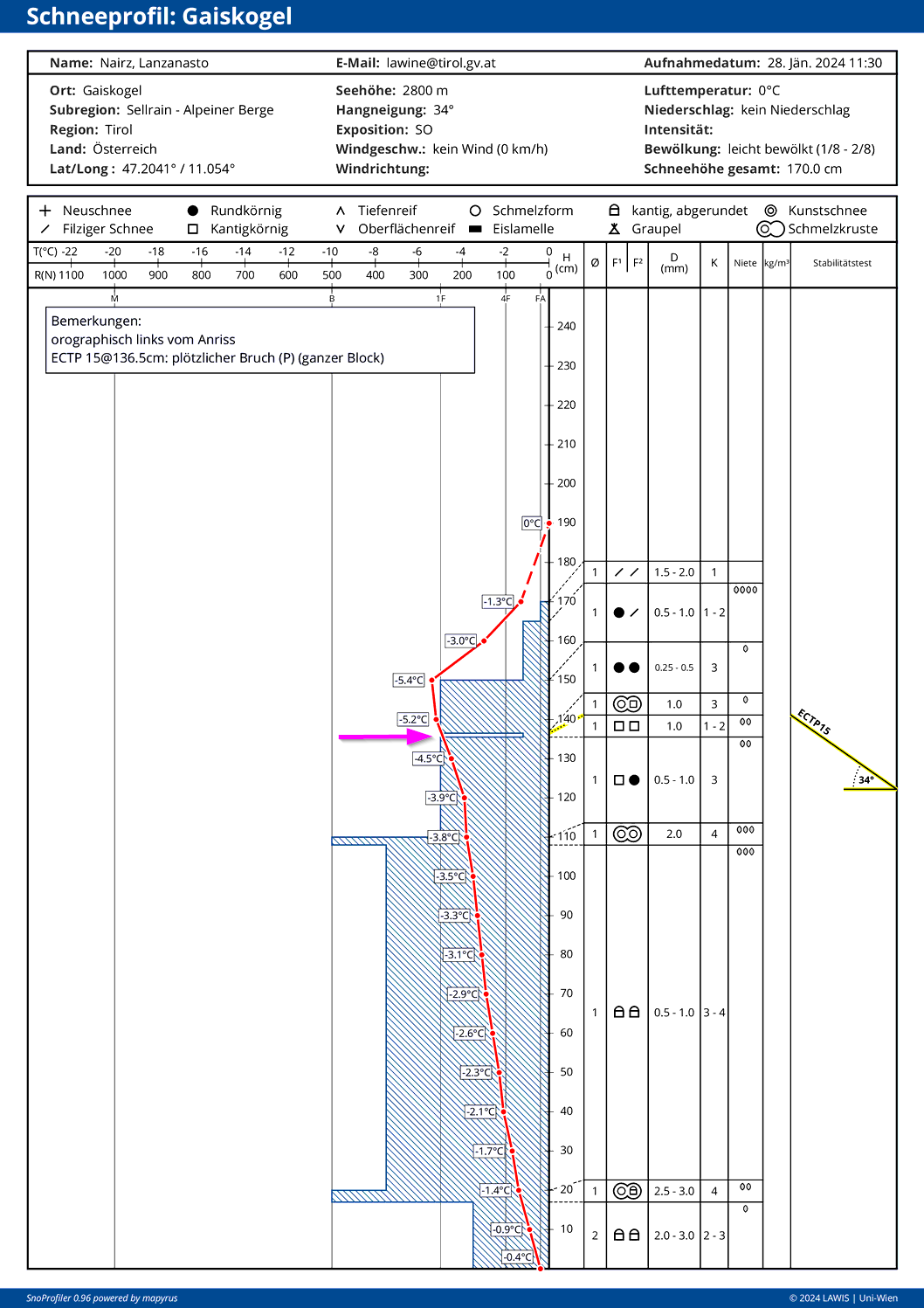
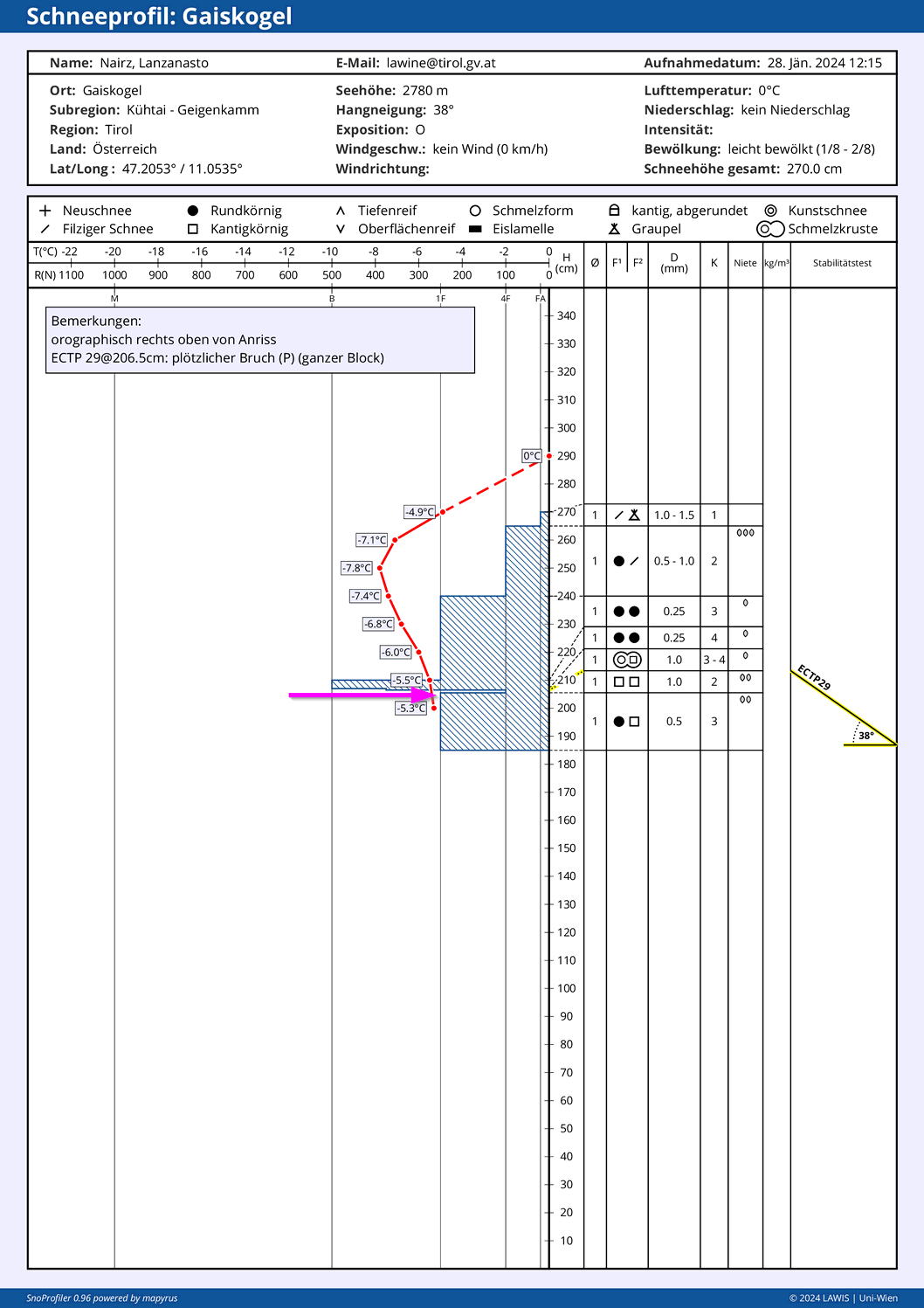
The avalanche incident
The slab avalanche triggered in extremely steep terrain (>40°) on a SE slope at about 2800 m altitude. At the point of fracture the avalanche was about 20 m wide; it plummeted a length of 580 m.
